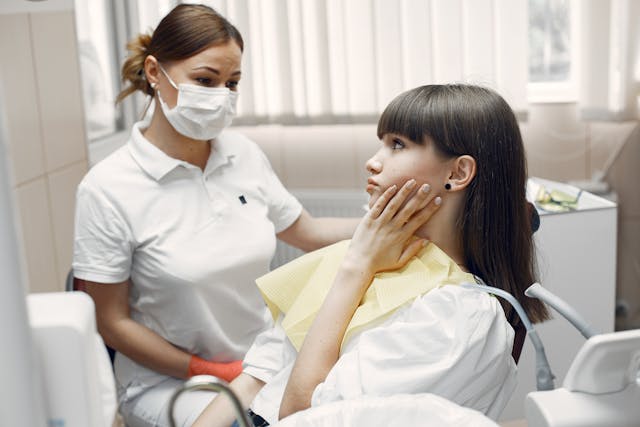Oral pain can occur unexpectedly, disrupting your daily activities and causing discomfort. Understanding the potential causes and how to respond can help you manage the situation effectively. This guide will provide an overview of common causes of sudden oral pain, information on emergency dentistry, and strategies to maintain oral health and minimize future issues.
Signs You Need Emergency Dentistry
Not all oral pain requires urgent care. However, certain signs may indicate a dental emergency. These include severe or throbbing pain, swelling of the gums or face, persistent bleeding, or sensitivity to temperature and pressure. If these symptoms arise, it’s advisable to seek professional emergency dentistry.
Common Causes of Oral Pain
Sudden oral pain can have various underlying causes. While some can be minor and manageable at home, others may require immediate professional attention.
- Tooth Decay: Tooth decay is a frequent cause of oral pain. It results from bacterial buildup, which erodes the enamel and exposes sensitive inner layers of the tooth.
- Cracked or Chipped Teeth: Physical damage to a tooth, such as a crack or chip, can lead to increased sensitivity or discomfort, particularly when eating or drinking.
- Gum Disease: Inflamed gums, bleeding, or discomfort, especially while brushing, could be signs of gum disease that may contribute to pain.
- Oral Infection: A dental abscess or infection can cause sharp, localized pain and may be accompanied by swelling or fever.
Identifying the potential cause of the pain can help guide your immediate actions and prepare you for discussing the issue with a dentist.
What To Do in a Dental Emergency
If you experience sudden and significant oral pain, taking immediate steps can help alleviate discomfort before accessing professional care.
- Rinse Your Mouth: Use warm water to clean the affected area gently. This helps remove debris and soothe irritated tissues.
- Apply a Cold Compress: For swelling, apply a cold compress to the outside of your cheek near the painful area. This may help reduce both swelling and discomfort.
- Use Over-the-Counter Pain Relief: Non-prescription pain medication may temporarily relieve mild to moderate discomfort. Be sure to follow the instructions on the packaging and avoid placing medication directly on the gums or teeth.
- Avoid Aggravating the Area: Refrain from chewing on the affected side of your mouth, and steer clear of hard or sticky foods that could worsen the pain.
If the pain persists or worsens, reach out to a dentist promptly. Keep a record of your symptoms to help with diagnosis and treatment.
Take Action for Your Oral Health Today
Sudden oral pain can be uncomfortable and disruptive. Understanding its potential causes and taking timely action can make a significant difference. If oral pain arises, following steps like rinsing, applying a cold compress, and using over-the-counter pain relief may help until you can consult a dentist.
Implementing preventative measures such as routine dental exams and good oral hygiene is crucial for maintaining long-term oral health. If you’re experiencing oral pain or have concerns about your dental health, schedule a professional consultation to address the issue and prevent further complications. Seeking timely dental care promotes healthy, pain-free living.

